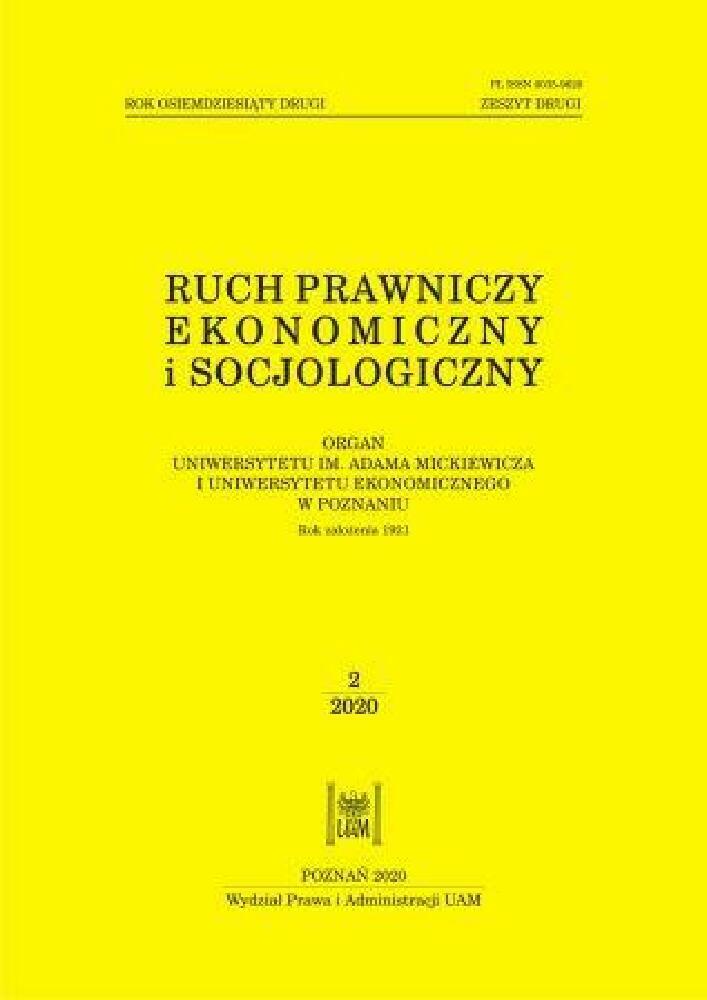Abstrakt
The ability to compete on numerous markets today depends on access to technological standards. When standards are protected by standard essential patents (SEP), a license to use such SEPs will be required. There have been numerous disputes in various jurisdictions over refusals to license SEPs. Most recently, disputes concern access to SEPs by the manufacturers of components. Some SEP holders deny access to their standard essential patents to component manufacturers and prefer to license end product producers. This practice has become a highly contentious issue around the world. In particular, manufacturers of components who are denied access to SEPs claim that such refusals amount to violations of competition rules. The author examines this highly contested practice is an attempt to show when denying access to an SEP license could harm competition.
Bibliografia
Contreras, J. (2018). Introduction, [in:] J. Contreras (ed.), The Cambridge Handbook of Technical Standardization Law. Cambridge: 1–4.
Contreras, J., Layne-Farrar, A. (2018a). Non-discrimination and FRAND commitments, [in:] J. Contreras (ed.), The Cambridge Handbook of Technical Standardization Law. Cambridge: 186–208.
Contreras, J., Cotter, T.F., Jong, S.J., Love, B.J., Petit, N., Picht, P., Siebrasse, N.V., Sikorski, R., Suzuki, M., de Werra, J. (2019). The Effect of FRAND Commitments on Patent Remedies [in:] C.B. Biddle, J.L. Contreras, B.J. Love, N.V. Siebrasse (eds.), Patent Remedies for Complex Products. Cambridge: 160–201.
Delrahim, M. (2018). The “New Madison” approach to antitrust and intellectual property law, Philadelphia, 16 March 2018. <https://www.justice.gov/opa/speech/file/1044316/download>.
Delrahim, M. (2017). Take it to the limit: respecting innovation incentives in the application of antitrust law, Los Angeles, 10 November, 2017. <https://www.justice.gov/opa/speech/file/1010746/download>.
Gupta, K. (2018). How SSOs work: unpacking the mobile industry’s 3GPP standards, [in:] J. Contreras (ed.), The Cambridge Handbook of Technical Standardization Law. Cambridge: 29–44.
Gupta, K. (2019). 5G and its anticipated intellectual property and antitrust policy issues. CPI Antitrust Chronicle, September 2019: 29–34.
Hovenkamp, H.J. (2019). FRAND and Antitrust Faculty Scholarship at Penn Law. <https://scholarship.law.upenn.edu/faculty_scholarship/2093>.
Lemley, M.A., Shapiro, C. (2007). Patent hold-up and royalty stacking. Texas Law Review 85: 1991–2049.
Padilla, J., Wong-Ervin, K.W. (2016). Portfolio Licensing at the End-User Device Level: Analyzing Refusals to License FRAND-Assured Standard-Essential Patents at the Component Level. <https://ssrn.com/abstract=2806688>.
Pohlmann, T., Blind, K. (2016). Landscaping Study on Standard Essential Patents (SEPs), Study commissioned by DG Grow, European Union.
Regibeau, P., de Cornick, R., Zenger, H. (2016). Transparency, Predictability, and Efficiency of SSO-based Standardization and SEP Licensing. A Report for the European Commission. European Union.
Risse, A. (2018). Injunctions in Germany, [in:] R. Sikorski (ed.), Patent Law Injunctions. Alphen Aan den Rijn: 63–86.
Sikorski, R. (2018). Between automatism and flexibility: injunctions in 21st century patent law, [in:] R. Sikorski (ed.), Patent Law Injunctions. Alphen Aan den Rijn: 239–250.
Teece, D.J. (2019). 5G and the global economy: how static competition policy framework can defeat open innovation. CPI Antitrust Chronicle, September 2019: 13–20.
Siebrasse, N.V., Sikorski, R., Contreras, J.L., Cotter, T.F., Golden, J., Jong, S.J., Love, B.J., Taylor, D.O. (2019). Injunctive relief, [in:] C.B. Biddle, J.L. Contreras, B.J. Love, N.V. Siebrasse (eds.), Patent Remedies for Complex Products. Cambridge: 115–159.
Licencja
Prawa autorskie (c) 2020 WPiA UAM

Utwór dostępny jest na licencji Creative Commons Uznanie autorstwa – Użycie niekomercyjne – Bez utworów zależnych 4.0 Międzynarodowe.





